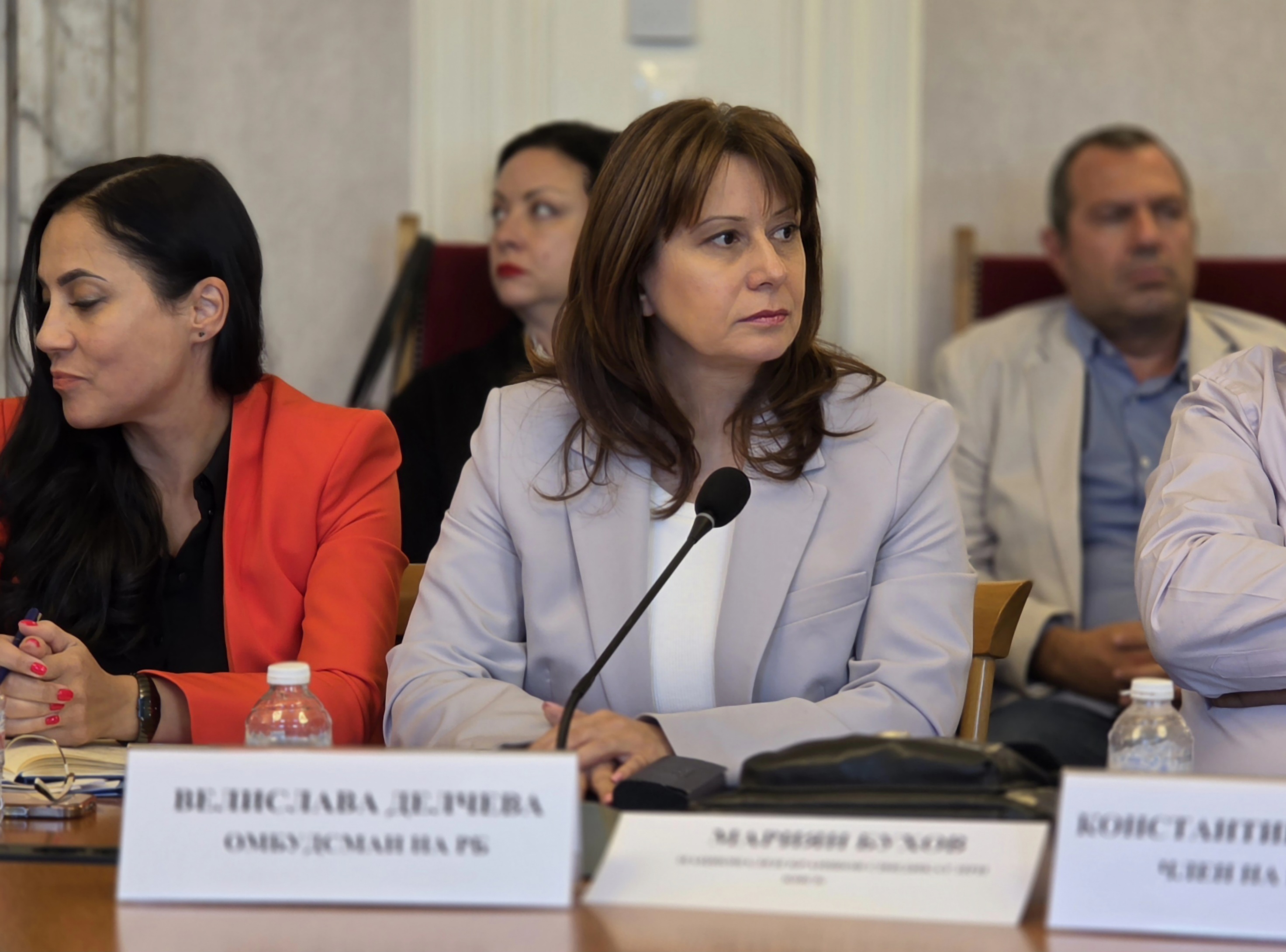News
Ombudsman: Over 70% of the complaints we receive are related to lack of access to water or poor service quality

23 September 2025
Ombudsman Velislava Delcheva took part in the meeting of the Parliamentary Committee on Regional Policy, Public Works, and Local Self-Government, where the new Water Supply and Sewerage Act, adopted by the Council of Ministers on 25 July this year, was discussed at first reading.
In her speech, she emphasized the importance of adopting a law that would effectively guarantee people's right to access water and sanitation services at economically reasonable prices, linked to the achievement of quality indicators.
"All the recommendations we have made are the result of an analysis of the complaints received by the Ombudsman Institution since 2020. And I must tell you that over 70% of the complaints we receive are related to lack of access to water or poor service quality," said Velislava Delcheva.
She added that her opinion was based on the issues raised by previous Ombudsman, which is the long-term vision of the institution.
According to her, there is a clear need not only for a new law, but also for a new Strategy for the Development and Management of Water Supply and Sewerage in the Republic of Bulgaria, which should be based on a thorough legal analysis of the country's previous water strategy and should present effective solutions for overcoming the water crisis and effectively protecting the interests of end users.
"Regarding the bill itself, I support the municipalities in their request that water supply and sanitation operators within a separate territory be different, as for me this is also in contradiction with Article 21, paragraph 1, item 8 of the Local Self-Governance Act," said the public defender.
Delcheva is adamant that it is fairer to introduce a uniform price according to the method of water supply service delivery in the territory of the water and sanitation operator – a uniform price for gravity-fed supply, a uniform price for pumped supply, and a uniform price for mixed supply.
"It is necessary to regulate the procedure for applying a lower price for water when it does not meet the regulatory quality requirements, i.e., we insist on a balance between price and quality. Here, I would like to make a comment that does not concern the current bill and may need to be corrected at the sub-legislative level, but it is necessary to introduce criteria and control for the provision of so-called water tankers, tankers, which are currently used in quite a few towns," emphasized the Ombudsman, giving the example of the town of Breznik, where there are only six water tankers for 5,000 people.
„"It is necessary to provide for sanctions against water operators for failure to meet quality and efficiency indicators, something that I believe is imperative," the Ombudsman emphasized.
According to Delcheva, the method for determining social tolerance for a given administrative area based on minimum monthly water consumption for drinking and domestic purposes is unclear, i.e., it is not clear where this information will come from. She pointed out that the website of the National Statistical Institute publishes information by region on the water used by households, supplied by water and sewerage operators on average per person per day by year, but not on the minimum monthly consumption of water for domestic purposes.
"Next, in the wording of Article 88, which introduces separate prices for access and consumption for each of the three types of services for residential consumers, I would like to point out that if the price for access remains, the law should specify the basic rules according to which these access prices will be determined and, above all, which costs they will cover. It must be made clear that these will be infrastructure costs only," the Ombudsman added.
Velislava Delcheva objected to the issuance of an enforcement order under Article 410(1) of the Civil Procedure Code, regardless of the amount of the claim.
According to her, this would lead to legal costs exceeding the amount of the consumers' principal obligation, often amounting to BGN 10, 20, or 30. Therefore, she recommended that before proceeding with enforcement, there should be an opportunity to go through a voluntary enforcement procedure - an invitation for voluntary enforcement, with a specified deadline, and the possibility of concluding an agreement for deferred payment of the obligations.


